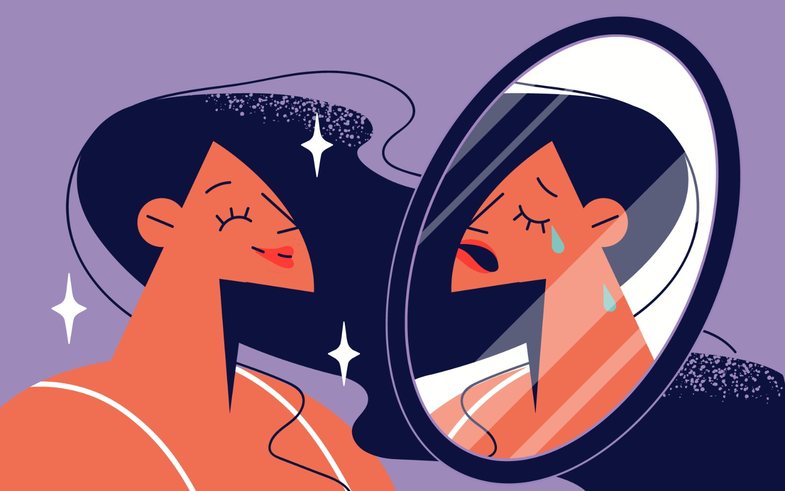
There is no one who has not experienced insecurity at some point in their life. Even those who seem steadfast, in one way or another, face self-doubt. We often think of insecurity as something obvious, but in reality, it manifests itself in much more subtle ways than we realize. Below, some of the hidden signs of insecurity, their impact on your personal and professional life, and ways you can cope with it.
What is uncertainty?
Quite simply: insecurity is the feeling of doubting yourself. It can come from past experiences, lack of self-confidence, or the influence of your environment. In some cases, it can also be caused by the presence of certain people who make you feel less confident.
9 hidden signs of insecurity
Insecurity isn't always obvious. In fact, we often don't even realize how it affects our daily behavior. Here are some signs that may indicate that you're more insecure than you think:
1. Apologizes for everything
Apologizing is normal, but if you do it all the time, it can be a sign of insecurity. When someone feels the need to apologize for everything, they are afraid that they may be a burden to others or cause problems. This behavior can make the person feel more insignificant.
2. You don't know how to accept compliments.
If someone says something nice to you and your first response is, "Oh no, that's not true," or "You haven't seen anything yet," then you may have a self-esteem problem. When you downplay a compliment, you're actually showing that you don't accept yourself for who you are.
3. Constantly seeks validation from others
If you often need to ask others: “Did I do well?”, “Do I look good?”, “Did you like it?”, there is a good chance that you are insecure. Of course, asking for opinions is normal, but when you do it repeatedly, it shows a lack of self-confidence and dependence on the approval of others.
4. You withdraw from social life
Instead of going out and having fun, you choose to isolate yourself because you fear judgment or feel like you don't belong. This behavior only fuels your insecurity and makes it even harder to get out of this situation.
5. You avoid challenges.
If you always choose the easy way out to avoid the risk of failure, then insecurity is affecting you more than you think. Sometimes, avoiding challenges masquerades as a desire to maintain stability, but it may actually be a fear of failure or exposure.
6. He brags too much.
Another way insecurity manifests itself is through constant bragging or a need to dominate conversations. If a person constantly talks about their accomplishments or tries to show you how good they are at everything, it's often to cover up feelings of self-doubt.
7. You want to be perfect in everything.
Perfectionism may seem like a positive quality, but when it becomes excessive, it's an indicator of insecurity. When you don't allow yourself to make any mistakes or have a hard time finishing something because it doesn't seem "good enough," it indicates a fear of judgment and a lack of self-confidence.
8. You constantly compare yourself to others.
If you find yourself frequently thinking, “Why don't I have what he has?” or “I'm not as successful as she is,” then insecurity is affecting you. This constant comparison only lowers your self-esteem and creates feelings of dissatisfaction.
9. You try to please everyone.
If you have a hard time saying “no” and always put other people’s needs before your own, it could be because of a fear of rejection. People who try to please everyone often feel like they’re not good enough if they’re not constantly giving something back to others.
How does uncertainty affect your life?
Although hidden, insecurity affects every aspect of life. It can damage relationships, make you withdraw from opportunities, and lower your self-esteem.
If you find yourself engaging in some of these behaviors, don't worry - insecurity is something that can be improved over time. By noticing it and working on it, you can build stronger self-confidence and live more freely.
Sources: Verywell Mind
Suggested articles:





